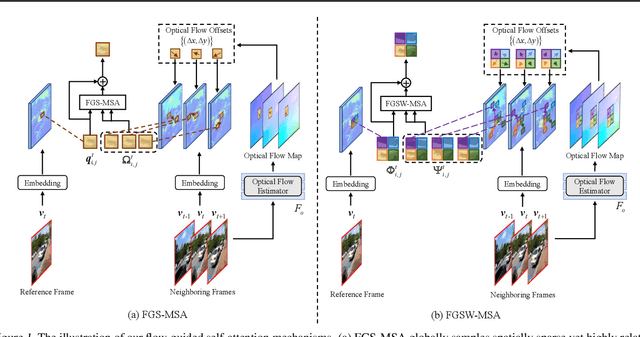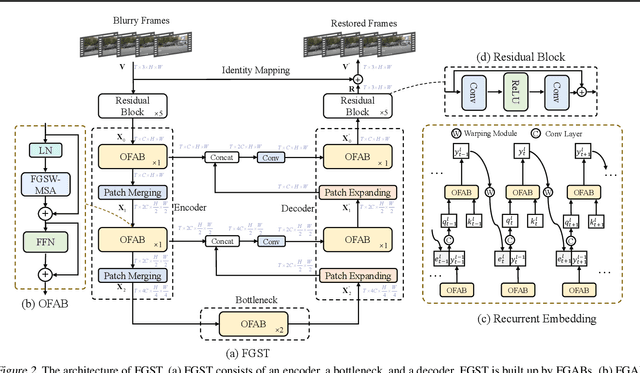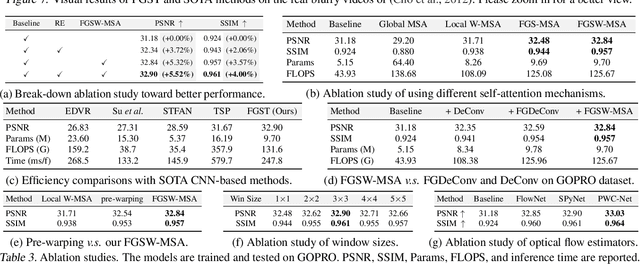Flow-Guided Sparse Transformer for Video Deblurring
Paper and Code
Jan 06, 2022



Exploiting similar and sharper scene patches in spatio-temporal neighborhoods is critical for video deblurring. However, CNN-based methods show limitations in capturing long-range dependencies and modeling non-local self-similarity. In this paper, we propose a novel framework, Flow-Guided Sparse Transformer (FGST), for video deblurring. In FGST, we customize a self-attention module, Flow-Guided Sparse Window-based Multi-head Self-Attention (FGSW-MSA). For each $query$ element on the blurry reference frame, FGSW-MSA enjoys the guidance of the estimated optical flow to globally sample spatially sparse yet highly related $key$ elements corresponding to the same scene patch in neighboring frames. Besides, we present a Recurrent Embedding (RE) mechanism to transfer information from past frames and strengthen long-range temporal dependencies. Comprehensive experiments demonstrate that our proposed FGST outperforms state-of-the-art (SOTA) methods on both DVD and GOPRO datasets and even yields more visually pleasing results in real video deblurring. Code and models will be released to the public.
 Add to Chrome
Add to Chrome Add to Firefox
Add to Firefox Add to Edge
Add to Edge